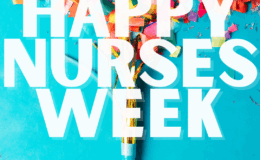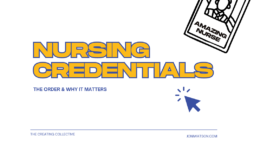Today my younger brother and his sweet wife delivered their first child. Hooray! My nephew had a bit of difficulty after birth – he was ashen, had a decreased respiratory rate, required several suctionings, and needed supplemental oxygen for a good while. He’s all good now, though. Unfortunately, I was not able to be at the birth as it was my son’s very first day of kindergarten (which is a post for another time), but being the nurse in the family, I answered several questions as best I could for my concerned family. My sister said the nurses were working on the baby with a calm vocal tone but with panic in their eyes. She knew something was wrong even though they were saying otherwise.
I had a similar experience when I delivered my third child five months ago. My L&D nurse knew I am a nurse, but at times other nurses (and nursing students) came in the room to help or while she was at lunch, etc. I’m not so sure they knew of my healthcare background. I had labored for over eight hours (third child!) and was headed toward a c-section if my uterus didn’t start stepping up the MVUs. I knew that; but at one point when my substitute nurse, who said I was doing “good,” thought I was preoccupied talking with my sisters, she started whispering to the nursing student three feet from my bed while watching the strip. I think a few things were wrong with her method, but nonetheless, when a nurse starts whispering to another healthcare professional, you know something is up. Thank goodness I can nod my head and say “uh hum” while actually listening to whispers. The situation ended well with a healthy baby, but these two instances have made me think…and not just about L&D or nursery nurses.
Some nurses tell it like it is – factual, with respect, concern, and commitment to care. It’s one of the qualities I consider when I think of great nurses. On the other hand, some nurses sugar-coat…and sometimes not so well. Whhhhhyyyyy? Just educate – what’s happening, why it’s happening, what’s occurring to make it better, how long the solution will take, what to expect, etc. Here are some other cues a nurse may not be telling it like it is:
- He closes the room door quietly and immediately yells, “I need some help down here.” All of which can be heard on the other side of the paper wall.
- She brings every nursing student in to “assess” because it’s a crazy weird situation good learning experience.
- The four nurses in the room are smiling yet yelling with their eyes.
- She says, “I need to make a phone call,” as she silences the monitor alarm symphony.
What else?
I’ve been guilty of sugar-coating vital information in my own naivety and fear. I truly believe the professional “tell it like it is” comes with experience and practice. Have you had similar experiences or shared in my guilt?





